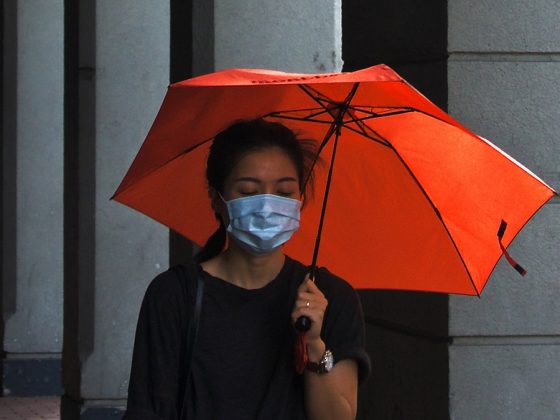China is at a critical turning point as the 19th Party Congress of the Chinese Communist Party (“CCP”) will be underway next week. The meeting will shape China’s political and economic trajectory over the next five years and beyond with key decisions made on party leadership and policy directions.
Will There Be Any Surprises?
Three reasons make us believe that there will likely be surprises during the party congress.
First, China’s political landscape has already been fundamentally reshaped. With the highly popular anti-corruption campaign, top-down military reform, and comprehensive supply-side structural reform that were launched in the past five years, Xi has overhauled decades-old CCP political norms and won immense popularity for his leadership.
Second, Xi has been able to consolidate his own political power in an unprecedented manner. The 6th Plenum of the 18th Party Congress conferred on Xi the status of “core leader,” which is usually granted only to party leaders after they have stepped down. Such a designation signals Xi’s growing clout—bureaucrats now know who to follow.
Finally, since the 18th Party Congress, many senior office vacancies have gone to Xi’s cohort. Of China’s 31 provinces, 15 new party secretaries and 16 new governors promoted since the 18th Party Congress either have career overlap with Xi, are long-time friends of Xi, or are connected to Xi through his top allies. The appointment of Xi’s people to key positions essentially gives them a head start for promotion.
Based on these reasons, we expect at least three major changes during the 19th Party Congress.
First, the probability of Xi choosing two successors is slim. Both Xi and Premier Li were chosen by the previous leadership as successors and entered into the Pol itburo Standing Committee (“PBSC”) during 17th Party Congress. Xi will be 69 at the end of the 19th Party Congress, slightly over the established 68-year old age limit; with no obvious, viable candidates at this moment, Xi may not select two successors during the 19th Party Congress. This suggests the likelihood of Xi serving a third term after the 20th Party Congress.
Second, seats within the Politburo will likely be reassigned. While it is indeed true that the Politburo structure has become more stable in recent party congresses, it is important to remember that there are no written rules on who should be included in the Politburo. For example, the party secretary of Chongqing did not enter the Politburo until 2007, while the Shandong and Hubei party secretaries held Politburo seats in the 15th and 16th Party Congresses, respectively. Xi will use his power to streamline the Politburo.
Third, the structure of central military commission (“CMC”) will likely change. Before the military reform, the CMC comprised of a chairman, two vice chairmen, and eight members from key departments and military branches. The reform split four CMC departments into smaller ones, consolidated the general chief of staff into a joint chiefs of staff, and established two new branches. Representing all of these positions on the CMC will significantly reduce efficiency in decision-making. We expect to see a smaller CMC with only a chairman and vice chairmen. This setting closely echoes Xi’s call to transform the military toward a combat-oriented one.
How Will Decision-making Be Impacted?
Xi will be able to pursue more ambitious goals with his strong grasp of the party and military apparatus. Officials received conflicting signals from the party apparatus and government organs during Xi’s first term—in early 2016, such conflict was so big that an “authoritative source,” widely suspected to be Xi’s top economic aide Liu He, had to write an article in the top party newspaper, the People’s Daily, to clarify reform goals. With Xi’s stronger grasp of the party and government apparatus during his second term, he will be able to set more ambitious targets with fewer mixed signals.
The State Council will likely become an executor of Xi’s initiatives with less decision-making power. In previous administrations, the State Council was a relatively powerful player in Chinese politics with its own sphere of influence. However, Xi has established over two dozen “central leading small groups” that essentially took away decision-making power from state council ministries. Some of the groups are chaired by Xi himself, others by his close confidants. This means that the party, not the State Council, is making decisions now.
Expect more volatility in regulations. As Xi consolidates policymaking power through his party-led groups, we have seen more reactive policy initiatives in the past months. Moving forward, we will likely see more “window guidance” to sectors and companies issued on a case-by-case scenario.
One Key Reminder
While the 19th Party Congress is indeed important, you should be reminded that it is mostly a reshuffle on the party side, but not on the government side; government appointments will not be confirmed until March 2018, when China’s legislature, the National People’s Congress (“NPC”), convenes to confirm state council appointments. Nonetheless, senior government leaders including the premier, vice premiers, State Council members and ministers will enter into the new Politburo/Central Committee during the party congress. Therefore, we expect to get more clarity on policy directions after the 19th Party Congress, as we will have a better sense of likely government appointments by analyzing new Politburo/Central Committee members.
What We Are Watching Now
The political fortunes of Wang Qishan will signal whether or not China’s anti-corruption effort will fully embrace institutionalization—a strongman and a highly outspoken figure, Wang was key to the success of the anti-corruption campaign during Xi’s first term that brought down over 100 senior party/government officials. Wang’s departure will signal the beginning of anticorruption 2.0, where the focus will be an institutionalized anticorruption regime that not only detects existing corruption but systematically prevents future corruption from happening.
Liu He’s appointment will indicate China’s reform trajectory. As Xi’s top economic aide, Liu He has been one of the most outspoken proponents for deepening reform. He is also the main architect of the current supply-side structural reform. At age 65, Liu He has already passed the age limit set for ministerial-level officials; we take this as a sign that he will be promoted to the Politburo, in which capacity he will continue to serve as Xi’s economic aide and push forward economic reforms.




